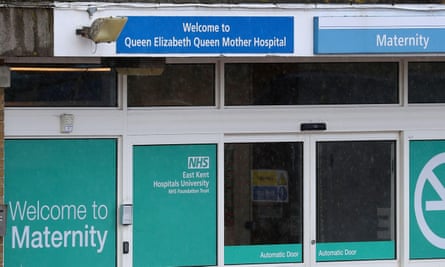Hundreds of babies are dying unnecessarily because overstretched maternity services are delivering substandard care and struggling to overcome entrenched poverty and racial inequalities, a report has warned.
The report by baby loss charities Sands and Tommy’s, which will be published on Monday, says the government’s aim to halve the number of stillbirths and neonatal deaths in England by 2025 is stalling, while there is no target in Scotland, Wales or Northern Ireland.
Stillbirths are creeping up in England after falling in the past decade. Babies dying before and during delivery rose to just over four in every 1,000 births in 2021. Similarly, long-falling rates of neonatal deaths, where newborns die within the first four weeks of birth, are also rising. There were 1.4 deaths of newborn babies for every 1,000 births in 2021, compared with 1.3 in 2020.

Progress in Scotland has also slowed and the downward trend in Wales is in reverse, with the highest rate of stillbirths since 2010.
Robert Wilson, head of the charities’ joint policy unit, said the government and NHS need to make fundamental changes. “The UK is not making enough progress to reduce rates of pregnancy loss and baby death, and there are worrying signs that these rates are now heading in the wrong direction,” he said.
He urged the government to take action to address stark inequalities and staff numbers. “Losing a baby in pregnancy or shortly after birth is not just ‘one of those things’. Too often losses are occurring because of care that is not in line with nationally agreed standards. There are also significant workforce pressures, which affect the ability to deliver safe care.”
READ RELATED: The Meal Molly Yeh Eats When She's Feeling Nostalgic
The report says staff are working in an increasingly under-resourced and overstretched system. Nearly 40% of English maternity services are classed as inadequate or requiring improvement, while staff surveys show 84% of midwives believe higher staffing levels are needed to do their jobs safely. Patients have also reported worsening experiences of maternity services since 2019.

The charities warn that national standards of care are too often not followed. NHS figures reveal that 40% of expectant mothers do not receive their first antenatal assessment within 10 weeks, where advice on folic acid supplements and stopping smoking are provided to bolster the health of the mother and baby.
The charities claim lessons are not being learned as the report follows a string of damning maternity serviceinquiries, most recently in East Kent and Shrewsbury and Telford.
Inequalities have changed little, and the difference in stillbirth rates between those living in the least and most deprived areas have increased since 2010, the reports says. In 2020, there were 4.3 stillbirths for every 1,000 births in the most deprived parts of the UK compared with 2.6 in the least deprived areas. The report notes that around 500 babies would survive if stillbirth rates in deprived areas fell to match wealthy areas. Black babies are still more than twice as likely to be stillborn as white babies.
A Department of Health spokesperson said it was committed to its 2025 target. “We are investing £165m annually to grow and support our NHS maternity staff and improve neonatal care, developing a new core curriculum for professionals working in maternity and neonatal services, and introducing 33 maternal mental health services across England by next March. “We have also set up a maternity disparities taskforce to tackle disparities for mothers and babies, while also reducing maternal and neonatal deaths.”




